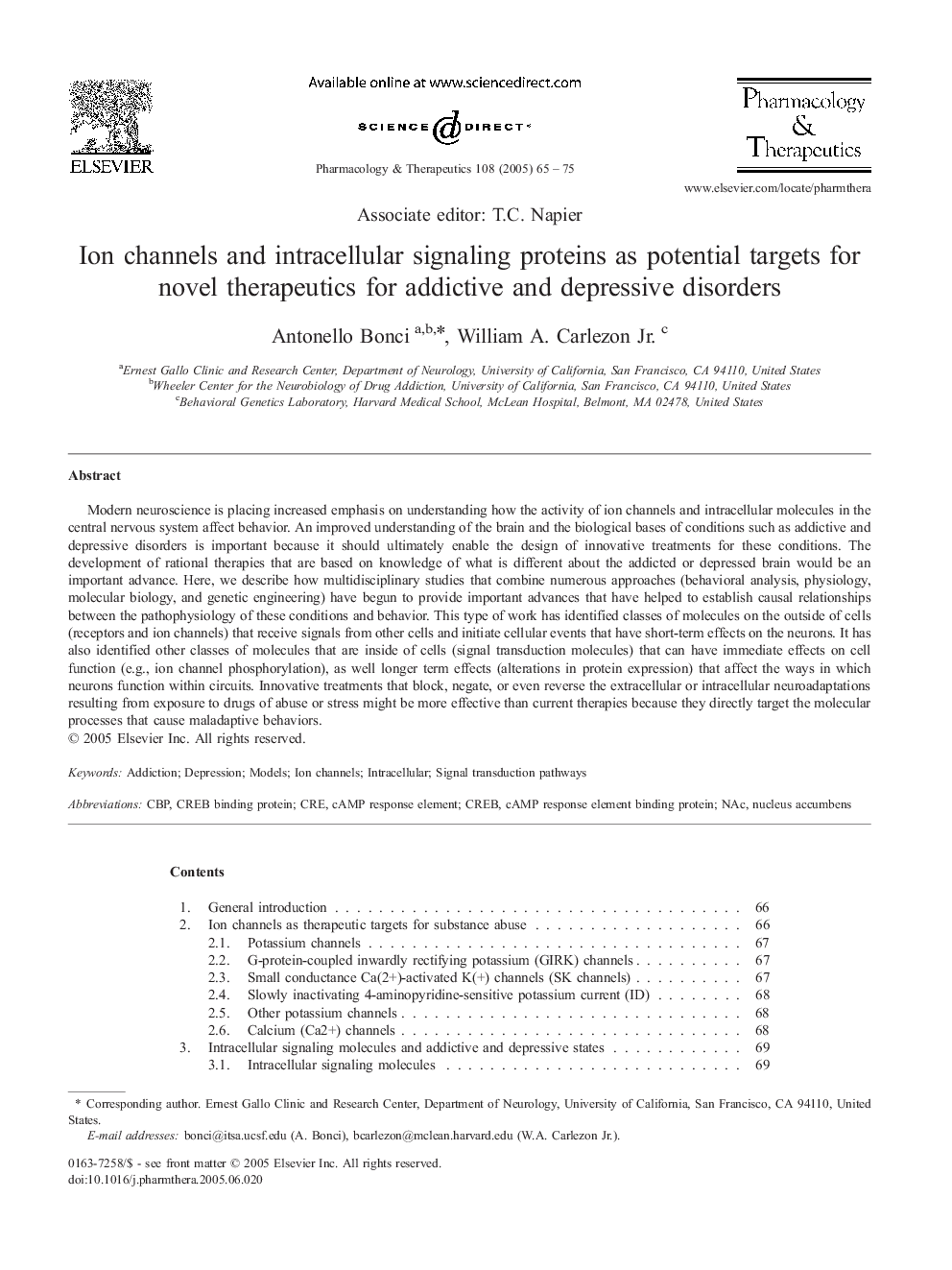| Article ID | Journal | Published Year | Pages | File Type |
|---|---|---|---|---|
| 9016123 | Pharmacology & Therapeutics | 2005 | 11 Pages |
Abstract
Modern neuroscience is placing increased emphasis on understanding how the activity of ion channels and intracellular molecules in the central nervous system affect behavior. An improved understanding of the brain and the biological bases of conditions such as addictive and depressive disorders is important because it should ultimately enable the design of innovative treatments for these conditions. The development of rational therapies that are based on knowledge of what is different about the addicted or depressed brain would be an important advance. Here, we describe how multidisciplinary studies that combine numerous approaches (behavioral analysis, physiology, molecular biology, and genetic engineering) have begun to provide important advances that have helped to establish causal relationships between the pathophysiology of these conditions and behavior. This type of work has identified classes of molecules on the outside of cells (receptors and ion channels) that receive signals from other cells and initiate cellular events that have short-term effects on the neurons. It has also identified other classes of molecules that are inside of cells (signal transduction molecules) that can have immediate effects on cell function (e.g., ion channel phosphorylation), as well longer term effects (alterations in protein expression) that affect the ways in which neurons function within circuits. Innovative treatments that block, negate, or even reverse the extracellular or intracellular neuroadaptations resulting from exposure to drugs of abuse or stress might be more effective than current therapies because they directly target the molecular processes that cause maladaptive behaviors.
Keywords
Related Topics
Health Sciences
Pharmacology, Toxicology and Pharmaceutical Science
Pharmacology
Authors
Antonello Bonci, William A. Jr.,
